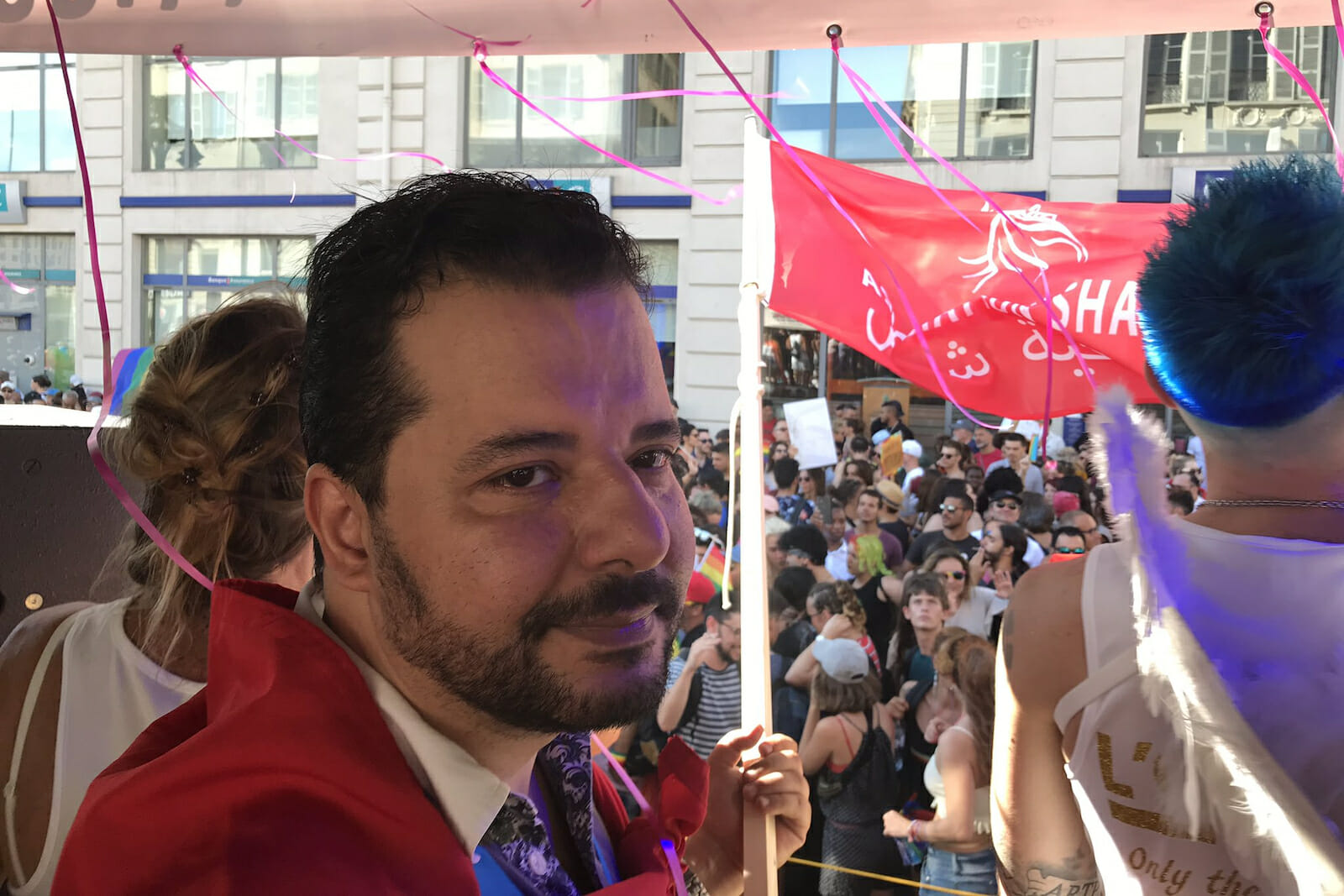
Mounir Baatour Wants to Tear Down the Biggest Taboo in the Muslim World
After atheism, homosexuality is one of the biggest taboos in the Muslim world and the wider Middle East, at least among the traditional and religious groups. Tunisia is one of the most modern and secular countries in the region. However, homosexuals are still routinely deprived of their basic human rights. Beji Caid Essebsi, the 92-year-old Tunisian president, recently passed away. The presidential election will be held in November.
A different character will be present in this year’s election, Mounir Baatour (@mounirbaatour), a homosexual lawyer. I recently had the opportunity to interview Mounir about the obstacles that homosexuals face in Tunisian society.
Our conversation, conducted via email and edited only for content, is below.
Why and how did you get involved in politics?
I have attended politics since Ben Ali had power. I was a member of one of the Tunisian opposition policy parties at the time. By attending the politics, I aimed to make positive changes in Tunisia; a change towards more modernism, improvement, and progressivism, as well as acknowledgment of more differences in the society and my country’s politics.
What are the main obstacles that homosexuals face in Tunisia?
The main obstacle is Article 230 of the Criminal Code, which considers homosexuality as a crime and sentences a homosexual individuals to three years in prison. This Article has been enforced since 1913 when Tunisia was a French colony. Homosexuality is considered a taboo, especially among people who live on the margins of society, do not have high educations, and are mainly Islamist. Homosexuals condemned by this class of the society due to a kind of prejudice and discriminatory look that equals the homosexuals to women. The fact is that women still have a lower position than men in some parts of Tunisian society, and this class of society has contributed to reinforcing this feeling.
You are a lawyer. Does the law support gay rights in Tunisia?
Homosexuals and transsexuals have no rights in Tunisia. No legal status is considered for them. The police treat homosexuals similar to criminals. There has been no change in the situations of homosexuals in Tunisia over the years. However, one can argue that there was less oppression against them during Ben Ali’s presidency.
What are your economic plans?
My plan is investment liberalization through abolishment of all government barriers to investment and fundraising. I will abolish all state laws and barriers that restrict the purchase of properties and real estate by foreigners. I will also make some changes in the banking and taxation section so that the private sector would be able to perform more conveniently. This would increase employment not only for the homosexuals but also for all Tunisians. Homosexuals and transsexuals to a greater extent are facing severe unemployment as the society stigmatizes them and doesn’t let them be actively present in different jobs.
What is your foreign policy vision?
My desired foreign policy is based on peace and lack of intervention in other countries’ affairs, along with the necessity respecting the Tunisian national sovereignty by other countries. Tunisia will be a friend to all nations.
What do you think about the feminist movement in Tunisia?
The feminist movement in Tunisia has been a leading movement for the defense of homosexual rights, and today’s feminist movement is aligned with us in terms of defending our rights. In Tunisia, Sharia law does not apply and the women have the right to divorce and take the custody of their children. I have a plan to strengthen the equality between men and women by sharing the parents’ authorities and duties among the family members.
Is there a difference among the attitudes of Tunisian Islamist parties towards homosexuality?
The attitude of all Islamist parties towards homosexuality is the same and there is no difference between them in this regard. Homosexuality is considered a deviation for some of them, while others consider it as a disease. We have to co-exist with the Islamists. However, they are still a threat to democracy and homosexuals’ rights in Tunisia. Some Muslim countries like Turkey have accepted homosexuality. So, why shouldn’t Tunisia, a modern and progressive country that has dismissed the Polygamy Law and abolished the strict laws about abortion since 1956, acknowledge homosexuals’ rights? This is my main question.
Has your life ever been threatened? Why don’t you leave Tunisia and migrate elsewhere as a refugee?
I won’t leave Tunisia even if I am threatened with death, because I feel that my struggle is fair and I have to do it in my country.
Do you have a plan to legalize gay marriage? Does Tunisia have the capacity to accept it?
Unfortunately, many of the homosexuals in Tunisian society pretend to be inclined to the opposite sex and get married to satisfy their families. Personally, I am against this kind of false marriage and I believe that the spouses would face many problems.
If you win the presidential election, how would you approach countries that consider homosexuality a crime?
If I am elected, I will use diplomatic approaches to exert pressure on Iran and Saudi Arabia in order to make them stop the prosecution and punishment of homosexuals.
What is your approach to Israel?
I have a peaceful solution to resolve the Palestinian-Israeli conflict. Improvement in the situation is possible only by acknowledging an independent Palestinian state. Israel is the only country in our region that has acknowledged homosexuals’ rights and respects it. I hope Tunisia would be the second country in this path and take the next step.
